Always lovely to see, no matter how easy the winter has been.

Always lovely to see, no matter how easy the winter has been.

The final day of the biennial meeting of The Monroe Institute’s Professional Division was clothed in white. Pretty and, not very inconvenient.




Members of the Professional Division of The Monroe Institute meet every other Spring for a few days of presentations, socializing, business meetings and just plain fun. This years began Saturday night and continues until breakfast Thursday morning. A few pix I took today. Not great pix, but they’ll give the idea, maybe.
Well-loved scenery:
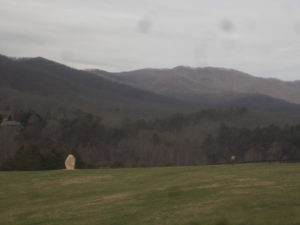
During a presentation in David Francis Hall:
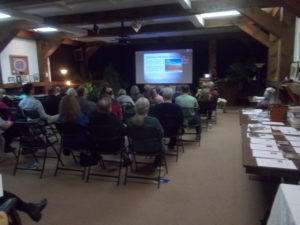
Another angle:
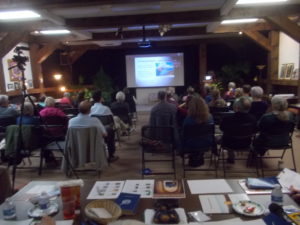
And a third:
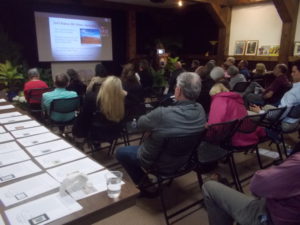
Socializing on the porch:

In going through old journals, transcribing quotations I had copied out, I find this, well worth sharing. And There Was Light, by Jacques Lusseyran, is a book well worth reading.
From And There Was Light, by Jacques Lusseyran, copied 9-21-13:
And then there were the poets, those unbelievable people so different from other men, who told anyone who would listen that a wish is more important than a fortune, and that a dream can weigh more than iron or steel. What nerve they had, those poets, but how right they were! Everything, they said, comes from inside us, passes through things outside and then goes back in. and that to them is the meaning of life, feeling, understanding, love. P 71.
* * *
From And There Was Light, by Jacques Lusseyran, copied 9-22-13:
And now, in conclusion, why has this Frenchman from France written his book in the United States to present it to his American friends today? Because today he is America’s guest. Loving the country and wanting to show his gratitude, he could find no better way of expressing it than in these two truths, intimately known to him and reaching beyond all boundaries.
The first of these is that joy does not come from outside, for whatever happens to us is within. The second truth is that light does not come to us from without. Light is in us, even if we have no eyes. Pp 311-312.
If you are an ebook reader, and if you like fiction, Crossroad Press has issued That Phenomenal Background (formerly titled Babe in the Woods) and will soon be publishing Dark Fire, the second of my novels to go to ebooks.
Here’s the link to the author’s page at Crossroad Press (alphabetized in order of author FIRST name, not surname).
https://crossroadpress.com/product-category/authors/frank-demarco/
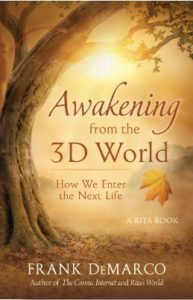
My friends Michael Langevin and Sofia Axelsson filmed an interview with me last week, concentrating primarily on Awakening from the 3D World. You can find it on this site, at the top of the page marked Interviews, which also includes other filmed and taped interviews including (ancient history, now) a stint on Coast to Coast.

I often, not invariably, take some time at year’s end to glance through my journals to remind myself what happened. This year, I see that i filled 1,500 (!) journal pages, a total easier to comprehend when one remembers that each conversation with Rita or whomever typically takes from 8 to 10 pages, and much of the year was filled with them. First came the sessions that will become “It’s All One World,” then immediately thereafter came the sessions with Nathaniel that will fom another book.
Still, a lot of writing!